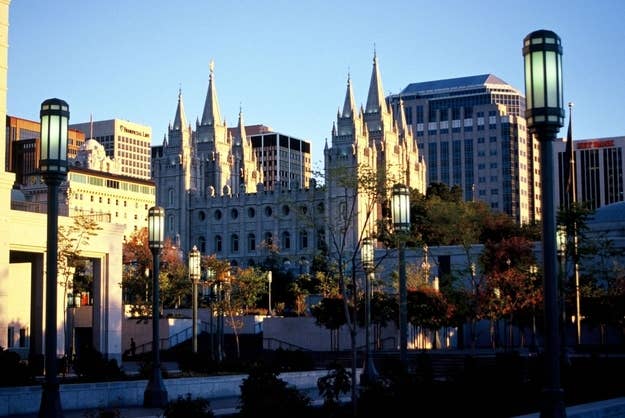
The Salt Lake Tribune sent a questionnaire to all 104 members of the Utah House and Senate to find out how, exactly, the Church of Jesus Christ of Latter-day Saints wields its significant political clout in the state.
The newspaper received responses from about a third of the lawmakers, which they published Monday. Of the respondents, 77 percent identified as Mormon (though lawmakers estimated the total figure was closer to 90 percent), and about half of them said they have served in local leadership positions for the Mormon Church.
But while the Mormon Church has voiced opinions on a few issues — immigration, gay rights, gambling, and liquor laws specifically — lawmakers said it does very little lobbying. In fact, most respondents said they had never heard from the church's Salt Lake headquarters at all, an interesting factoid at a moment when — in an echo of worries about Papal control of John F. Kennedy — some of Mitt Romney's critics worry about his ties to the church organization.
Democratic House Minority Whip Jennifer Seelig, a Methodist, told the Tribune she saw more religious meddling in her home state: "In comparison to Kentucky, the LDS Church is not that directly active in politics." And Republican Rep. Stephen Handy, said, "I wouldn't know the chief LDS Church lobbyist if he walked in the door and sat right next to me."
Of course, as reporter Lee Davidson points out, the church doesn't have to push very hard in Utah to advance its agenda:
That Mormon influence, lawmakers say, does not generally come from edicts over the pulpit or through lobbying in the halls of the Capitol. Instead, it comes indirectly — mainly through legislators’ own religious views.
After all, most elected officials here are Latter-day Saints who vote based on values instilled in them as Mormons — and even non-LDS officials try to reflect the will of constituents who are overwhelmingly Mormon.
Critics have worried that if Romney, a devout Mormon, occupies the Oval Office, his church would be in a position to exert undue influence on the president. But the Tribune's survey seems to suggest that political lobbying isn't in the church's wheelhouse. That doesn't mean it couldn't change its tack with newfound access to power — and certainly Romney's worldview, shaped by his faith, would inform the decisions he made in office — but for the church to start aggressively lobbying the White House would require a substantial shift in policy and practice.
